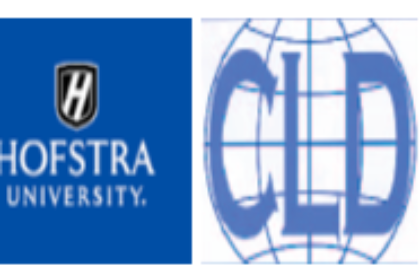
Earlier this month, the Hofstra Labor Studies and the Center for the Study of Labor and Democracy in collaboration with Long Island Jobs with Justice and A.L.L.O.W. (Advancing Local Leadership Opportunities for Women) conducted a virtual forum addressing care work in the context of COVID-19. This discussion emphasized the financial and mental health challenges associated with all types of care work during this pandemic, and the immense need to address and resolve these issues in order to assist with a fair and sustainable economic recovery. Although the discussion is focused primarily on Long Island and New York, the problems indicated are applicable to care work throughout the U.S.
There is anecdotal evidence to suggest that the unemployment or the stress of juggling work and home life as a result of the crisis has hit women much harder than men. This discussion utilized academia as an example of this, drawing upon data indicating that academic journal submissions have greatly increased among men since the beginning of the pandemic, but sharply decreased among women. For those working in academia, publishing work is crucial to professional advancement.
The pandemic has also shed a harsh light on the fragility of the overall childcare system in the U.S. Many families lacked adequate childcare even before the pandemic, forcing them to rely on unpaid care work. These existing issues paired with the recent closures of childcare facilities has exacerbated the problem.
Although the CARES Act did include childcare support, New York receiving $164 million going toward the childcare industry to provide protective equipment and cleaning supplies, the panel argues that while helpful those measures still did not provide adequate relief. The HEROES Act could potentially provide further relief for the care industry, but participants of this forum are less than optimistic about it providing the level relief needed.
The International Labor Organization estimates that three-quarters of unpaid care worldwide is provided by women. In the U.S. women provide 37% more unpaid care work than men on a daily basis. Among care providers in the U.S., Hispanic women do the majority of unpaid care and account for the biggest gap among men and women. Beyond traditional gender roles, this is largely tied to economics; oftentimes men have opportunities to make more money. But generally speaking, even when both parents work full time, women are still taking on more unpaid work even if they are earning more money than the male figure within the household.
There is also a societal tendency which expects care workers to be exceptionally giving. This is highlighted in the fact that even within paid care work positions, there is a fair amount of unpaid work being performed. For example, staying with an elderly person at their doctor’s appointment a couple of hours after the official workday has ended. This is a constant strain within the care industry, and COVID-19 has increased the pressure on this component of unpaid work within the paid care industry.
Additionally, the many racial and ethnic disparities within care work serve as a microcosm of larger racial inequities prevalent in society. For example, in New York, 80% of care workers are women, and a large majority of them are women of color. Furthermore, care workers in New York typically make minimum wage yet are still known to go above and beyond in their roles to ensure the best care is provided, regardless of whether or not it is part of their job description. This existing issue has been pushed to a new level due to COVID-19; now many of our care workers are putting their lives on the line.
Part of the reason that low wages are prevalent within the care sector is the historical association that care work is a “women’s job,” coming naturally and requiring little skillset. This sentiment in the U.S. is compounded by care work being viewed as the responsibility of the individual. The decision to have a family is viewed as a personal choice, therefore the basic needs of childcare are the sole responsibility of the parents, not something to be addressed via larger social safety nets.
New York is facing a particularly troubling dilemma within its care work industry. Despite the fact that a large majority of the workforce is comprised of immigrants, the guidelines that have been released outlining protection measures from COVID-19 are only available in English. This is concerning given that some workers may not yet possess the English language proficiency necessary to fully comprehend these guidelines.
In order to address these strains within the care work industry, political will and national policy are needed. The U.S. Department of Defense provides an exemplary model that could be emulated on a national scale. This government sector presently has one of the best childcare systems available in the U.S., operating on a sliding scale making it accessible to all those within the department that need it. This allows these federal employees to perform their duties with the comfort of this social safety net.
Furthermore, at the local level, immediate state, and county-level funding for care work can have a significant impact on the accessibility needed during this stressful time. Without swift action on the policy level, the issues discussed will continue and have detrimental effects on not only families, but economic recovery as well.
This blog was authored by Jenn Brown, CWE-GAM Communications Assistant
